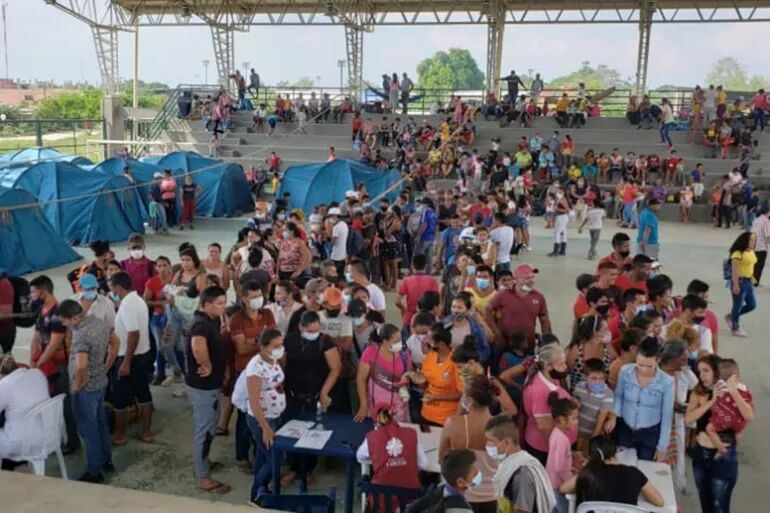Thousands of refugees flee as armed conflicts on Colombian border continue
Violent clashes between the Venezuelan military and armed rebels persist while refugees pay the ultimate price

Venezuelan refugees in Apure, Colombia / Photo Credit: Reuters
VENEZUELA. Apure: Military operations carried out by the Venezuelan armed forces on 25 March forced thousands of refugees to flee and seek shelter in neighboring Colombia. Venezuelan officials claimed their military is fighting Colombian armed dissidents in the countryside. At present, more than 6,000 Venezuelans have been displaced in addition to civilian casualties reported in the state of Apure.
Did the military attack their own people?
A man named Niomar Diaz, 26, told Reuters news agency that the Venezuelan military was abusive, which necessitated his family to flee for Colombia along with several neighbors. "When the bombs were falling I felt so nervous," Diaz explained. "In one house, a grandfather died, an eight-year-old boy died, a nine-year-old girl, and her mom. The situation was terrible."
Though the land border with Colombia is currently closed due to COVID-19, it hasn't stopped a tidal wave of refugees from flooding into Arauquita municipality, leaving the governor of Arauca and others scrambling to provide emergency assistance.
An ongoing battle with no easy solution
According to the NGO, Fundaredes, activists identified the opposing combatants as the Fuerzas Armadas Revolucionarias de Colombia (FARC), which is the oldest active guerrilla terrorist organization in South America. The director of Fundaredes, Javier Tarazona, claimed that several localities of Apureña have been subjected to, "Constant overflights, bombings, and detonations," by the Venezuelan military.
Since the beginning of the conflict, two soldiers have been killed while six purported terrorists were "neutralized," and another 27 suspects were captured.
Fundaredes denounced the civilian killings that took place on 25 March at the hands of an elite group of military police, whose dissolution was requested by the United Nations due to multiple accusations of extrajudicial executions.
A checkered and bloody history
The FARC has a long history of conflict with the elected government of Colombia and a volatile relationship with Venezuela's leaders. Since 1964, the guerrilla organization, which has its origins in Cold War-era communism, has been involved with kidnapping, murder, illegal land seizures, and narcotics distribution. While the FARC has historically been granted safe haven within Venezuela's borders since the era of president Hugo Chavez, the recent clashes may mark a turning point in Venezuelan relations with the long-standing terrorist group.



